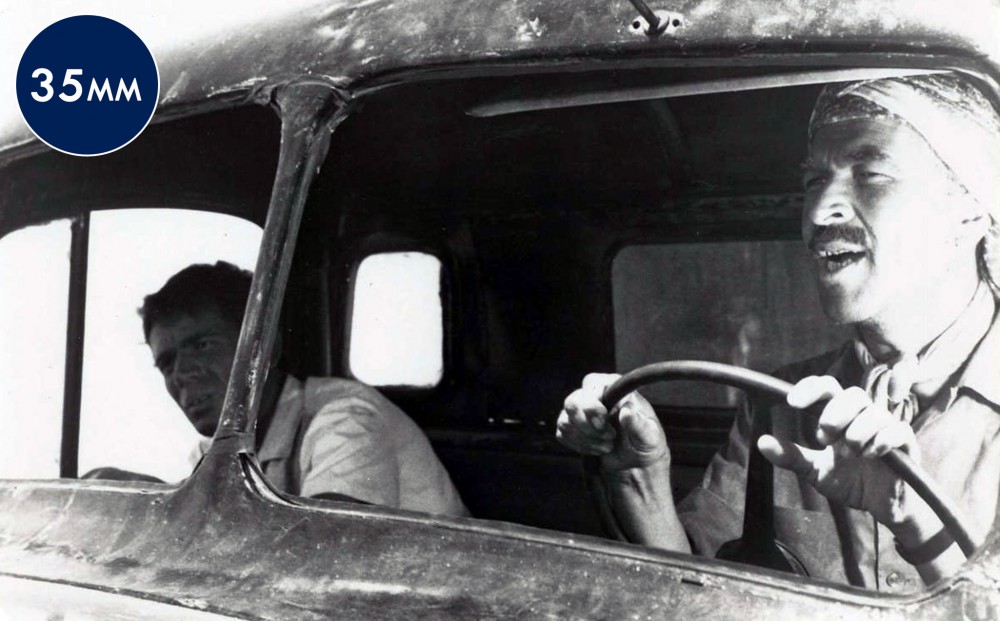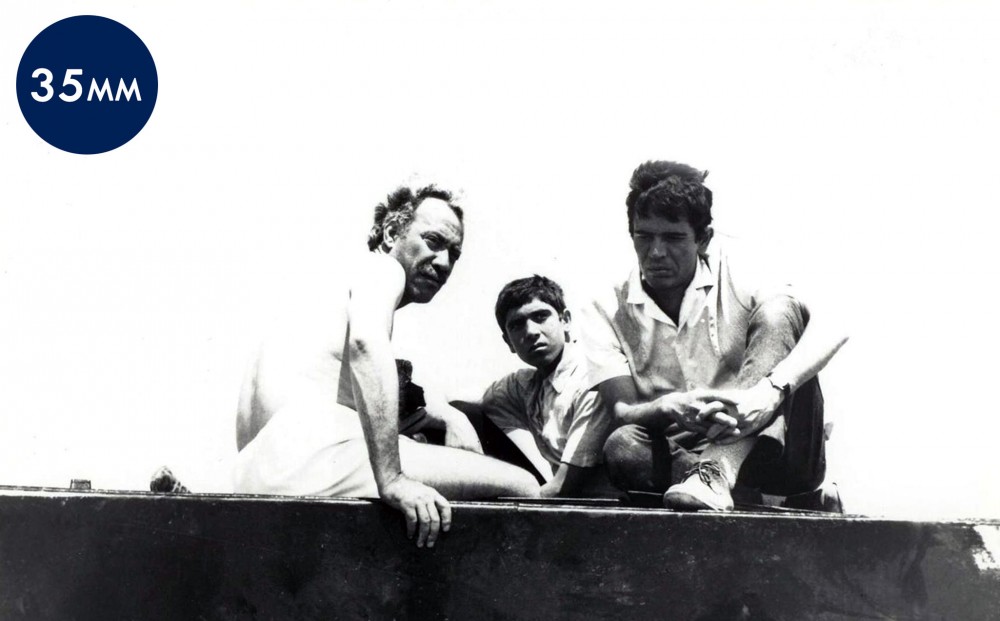THE DUPES
8:30
Monday, May 27
(1973, Tewfik Saleh) Three Palestinian men attempt a border crossing to find work in oil-rich Kuwait. Pan-Arab production, adapted from the novella Men in the Sun by Palestinian writer Ghassan Khanafani, directed by the Egyptian Saleh, funded by Syria’s National Film Organization, and shot in both Syria and Iraq. Saleh updated Kanafani’s story to reflect an increasingly politically vocal Palestinian leadership. In Arabic, with English subtitles. 35mm. Approx. 107 min.
Plus short They Do Not Exist (1974, Mustafa Abu Ali): Taking its name from Golda Meir’s famous denial of the existence of a Palestinian people, Mustafa Abu Ali’s film follows daily life in the Nabatiya refugee, its destruction, and the aftermath. One of the few surviving Palestinian films from that era, after the Palestinian Film Archive was largely lost during the siege of Beirut. In Arabic, with English subtitles. Digital. Approx. 25 min.
Reviews
“One of the seminal works of the Syrian cinema, The Dupes was shot by one of Egypt’s finest filmmakers, based on a work by an acclaimed Palestinian author set largely in Iraq. Tewfik Saleh (Street of Madmen, The Rebels), adapting Ghassan Khanafani’s 1962 novella together with its author, creates a dense interweaving of past and present, fiction and documentary in this harsh condemnation of the treatment of diaspora Palestinians by their fellow Arabs.”
– Electronic Intifada
“[Mustafa Abu Ali’s] films were significant not just for their content; his was a cinema which reinvented the form. He had collaborated with Jean-Luc Godard, criticized western cinema for its orientalism, and created a vital, urgent body of work… He reimagined cinema for a country whose film tradition had been, until the 1960s, one of loss and omission… His masterpiece They Do Not Exist mixes drama (acted by non-actors) with documentary footage; the film's use of music and silence is finely balanced. There is a layering of narratives: the intimacy of a little girl writing a letter on a sunlit table; the power of fighter planes taking off to a Bach soundtrack; a man remembering the little girl. Scenes from the destruction of a refugee camp are followed by footage of the press conference afterwards. The film shows us how no one image or narrative can fully convey the politics of war.”
– Sarah Wood, The Guardian


